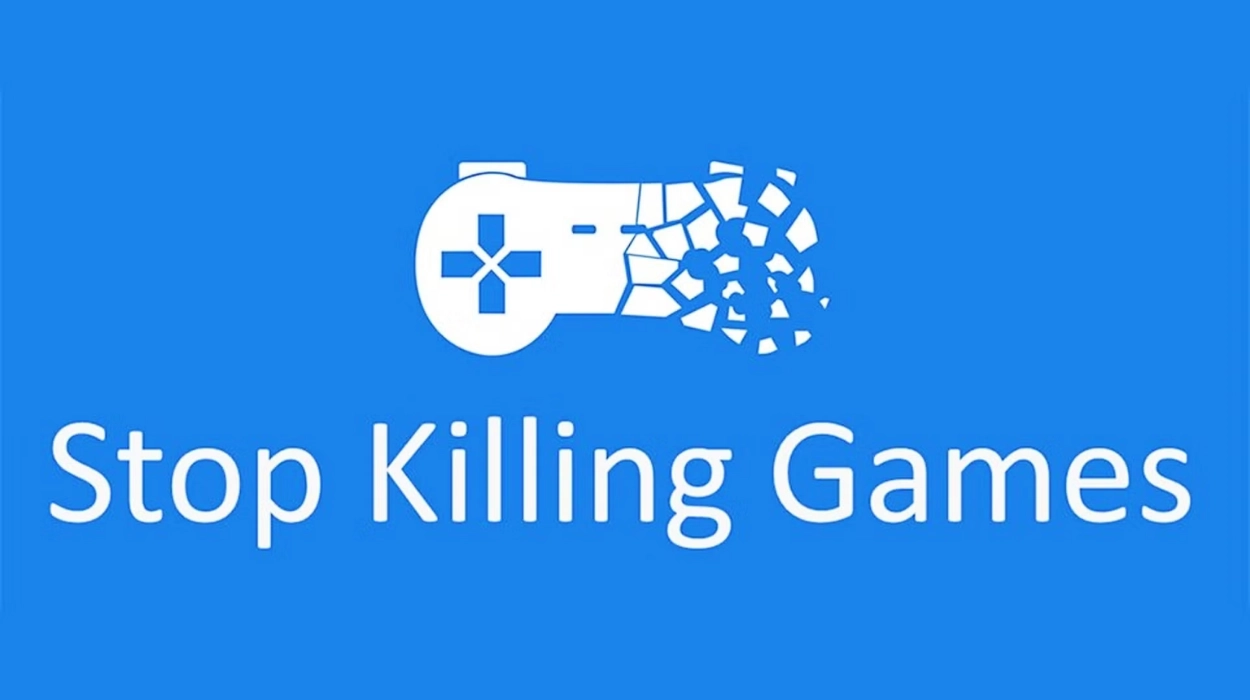UK Parliament (Parliament Politics Magazine) – The UK government has scheduled a parliamentary debate on the “Stop Killing Games” (SKG) petition for 3 November 2025, following the petition receiving almost 190,000 signatures in the UK alone. The movement, started by YouTuber Ross ‘Accursed Farms’ Scott, campaigns against publishers disabling video games that consumers have already purchased, calling for changes to consumer protection laws.
A Parliamentary Debate Set for November
The British government has officially announced that the Stop Killing Games petition will be debated in the House of Parliament on 3 November 2025, as reported by Jack Stewart, Senior Editor at Esports News. The petition, which began in April 2024, has grown into a significant consumer movement opposing the practice whereby publishers take older video games offline, rendering them unplayable for those who purchased them.
Every individual who signed the UK petition received confirmation via email stating:
“Parliament is going to debate the petition you signed – Prohibit publishers irrevocably disabling video games they have already sold. The debate is scheduled for 3 November 2025. Once the debate has happened, we’ll email you a video and transcript.”.
Origins and Growth of the Movement
The SKG petition was initially launched by YouTuber Ross ‘Accursed Farms’ Scott, who began the campaign after Ubisoft took down servers for “The Crew,” revoking licences from legitimate buyers. According to detailed coverage by Stewart, the European Union version of the petition gathered just under 1.5 million signatures, 97% of which were validated as legitimate. Simultaneously, the UK petition accrued just under 190,000 signatures, crossing the threshold (100,000 signatures) needed to compel a parliamentary debate.
As noted in reporting by GamingOnLinux, the UK Department for Culture, Media and Sport responded to the petition in February 2025 but indicated no immediate plans to amend consumer law, citing that those selling games must comply with existing consumer law requirements.
Historical Government Response and Industry Context
Labour MP Chris Bryant addressed the concerns earlier this year, stating:
“We appreciate the frustrations of players of some games that have been discontinued. The Government has responded to a petition on this issue.” At the time, the government affirmed there were no plans to amend UK consumer law regarding disabling video games but committed to continued monitoring of the situation [Jack Stewart, Esports News].
Despite government assurances, the movement has gained traction. The petition highlights what supporters describe as “planned obsolescence” in digital games where consumers lose access without recourse or ability to retain or repair their purchased product. The petition calls for legislative action to prohibit publishers from permanently disabling video games once sold, framing it as a statutory consumer right.
Government Investment in UK Gaming Industry
The UK government’s interest in the gaming sector was further demonstrated by its announcement earlier in 2025 of a £30 million Games Growth Package aimed at supporting British game developers and studios. As part of a larger £380 million investment into creative industries, this package dedicates £10 million per year over three years to encourage development in the UK’s gaming sector and maintain its status as a “creative superpower”.
However, some observers have criticised the plan’s limited reference to the rapidly growing esports industry. Despite this, fiscal backing for major events in the UK, such as the ESL One Birmingham Dota 2 tournament, which received funding alongside local authorities, shows governmental recognition of esports as a rising sector.
Significance of the Petition and Next Steps
The petition’s scale in both the UK and European Union marks it as a pivotal moment for consumer digital rights. As reported by Wikipedia and Inquisitive Minds, the European Citizens Initiative related to this campaign amassed over 1.4 million signatures, highlighting cross-border momentum. The petition urges that publishers leave games in a playable state after discontinuing official support, without transferring ownership or monetisation rights.
Ross Scott has stressed that the campaign does not seek to enforce ongoing resources from developers but demands that consumers retain access to what they have legitimately purchased within reason. Scott also publicly distanced himself and the movement from a cryptocurrency project named Stop Killing Games, warning it is a scam attempt unrelated to the campaign.
Community and Industry Perspectives
The gaming community has long debated digital ownership and preservation, with many pointing to fan-run efforts to save games threatened by server shutdowns. A visible example is “The Crew Unlimited,” a fan-run project to maintain game access after Ubisoft’s servers closed, demonstrating community capabilities in preservation.
Critics of the petition and some industry voices argue that publishers cannot be legally compelled to maintain server infrastructure indefinitely, and technological obsolescence is a natural part of digital products. However, supporters argue stronger consumer protections are necessary to prevent loss of purchased content and planned obsolescence.
Watching the Debate
The debate set for 3 November 2025 will be broadcast on the UK Parliament YouTube channel, allowing public viewing of discussions around this petition and its demands. Following the debate, all signees will receive a video recording and transcript.
As the issue gains parliamentary attention, it remains to be seen whether the UK government will propose concrete measures or legislative amendments to address the concerns raised by players and consumer advocates.


